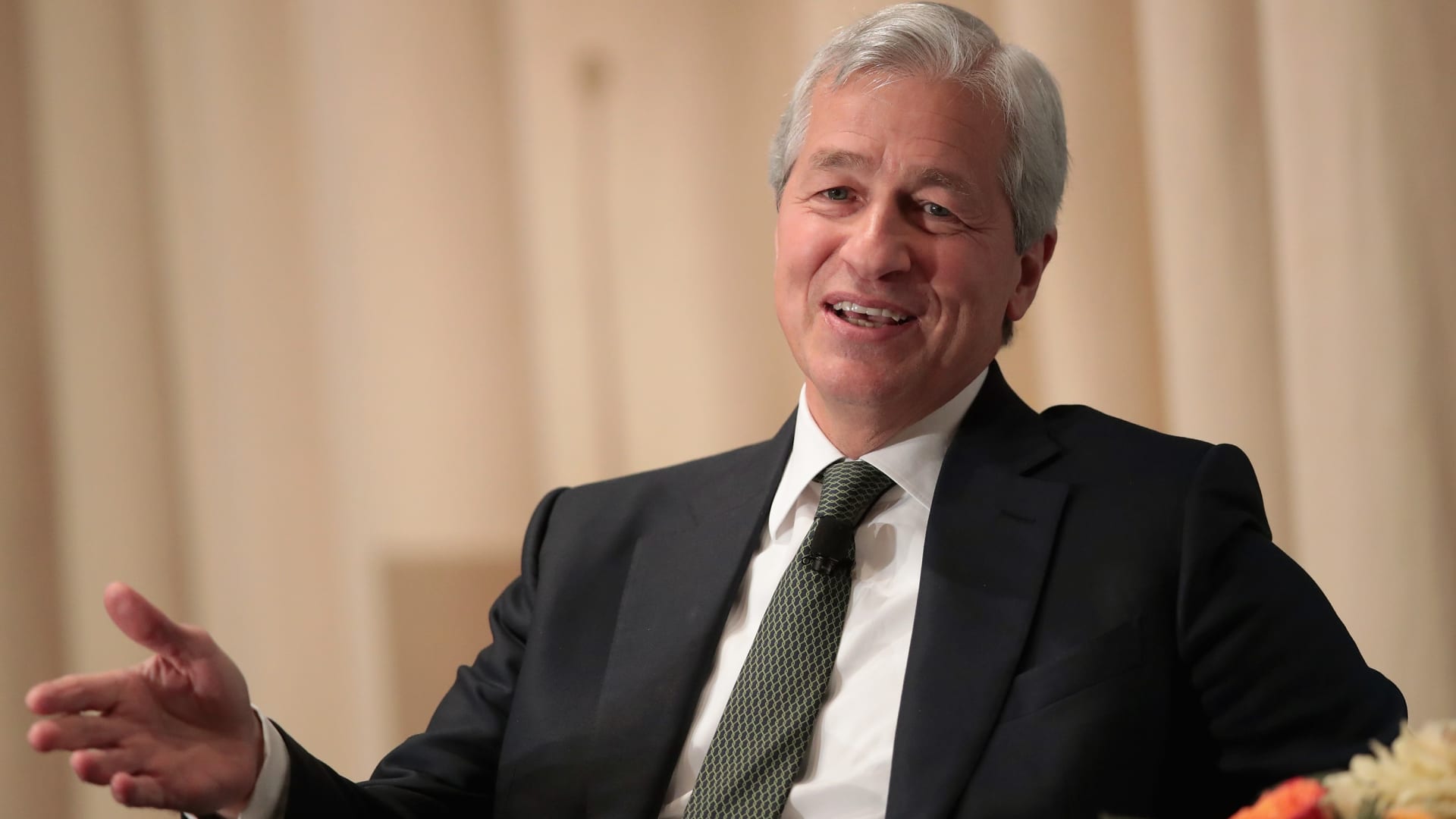JPMorgan Chase reports $524 million hit from market dislocations fueled by Russia sanctions

JPMorgan Chase said Wednesday that first-quarter profit fell 42% from a year earlier, driven by increased costs tied to bad loans and market upheaval caused by the Ukraine war.
Here are the numbers:
- Earnings: $2.63 a share (not clear if comparable to $2.69 estimate).
- Revenue: $31.59 billion, vs. $30.86 billion estimate, according to Refinitiv.
CEO Jamie Dimon struck a note of caution in his remarks, saying that he saw “significant” risks ahead for the U.S. economy.
“We remain optimistic on the economy, at least for the short term – consumer and business balance sheets as well as consumer spending remain at healthy levels – but see significant geopolitical and economic challenges ahead due to high inflation, supply chain issues and the war in Ukraine.”
JPMorgan, the biggest U.S. bank by assets, is closely watched for clues to how Wall Street fared during a tumultuous first quarter.
On the one hand, investment banking fees are expected to plunge because of a slowdown in mergers, IPOs and debt issuance in the period. On the other hand, spikes in volatility and market dislocations caused by the Ukraine war may have benefited some fixed income desks.
That means there may be more winners and losers on Wall Street than usual this quarter: Firms that navigated the choppy markets well could exceed expectations after analysts slashed estimates in recent weeks, while others could disclose trading blow-ups.
JPMorgan said last month that its trading revenue dropped 10% through early March, but that turbulence tied to the Ukraine war and sanctions on Russia made further forecasts impossible.
“The markets are extremely treacherous at the moment; there’s a lot of uncertainty,” Troy Rohrbaugh, JPMorgan’s global markets chief, said during the March 8 conference. “The full ramifications of the current conditions are still uncertain.”
Another area of focus for investors is how the industry is taking advantage of rising interest rates, which tend to fatten banks’ lending margins. Analysts also anticipate improving loan growth as Federal Reserve data show banks’ loans grew 8% in the first quarter, driven by commercial borrowers.
Still, while longer-term rates rose during the quarter, short term rates rose more, and that flat, or in some cases inverted, yield curve spurred concerns about a recession ahead. Banks sell off when investors worry about recession as that could create a surge in loan losses as borrowers fall behind.
Analysts will also be keen to hear what executives have to say about their direct and indirect exposure to the Ukraine conflict. JPMorgan said last month that it was unwinding its Russia operations. Dimon said in his annual shareholder letter that while management isn’t worried about its Russia exposure, it could “still lose about $1 billion over time.”
Finally, after JPMorgan disclosed expectations for surging expenses this year in January, analysts will want to hear more about the trajectory of rising costs.
Shares of JPMorgan have dropped 16.9% this year before Wednesday, worse than the 10.6% decline of the KBW Bank Index.
Rival banks Goldman Sachs, Citigroup, Morgan Stanley and Wells Fargo are scheduled to report results Thursday.
This story is developing. Please check back for updates.




